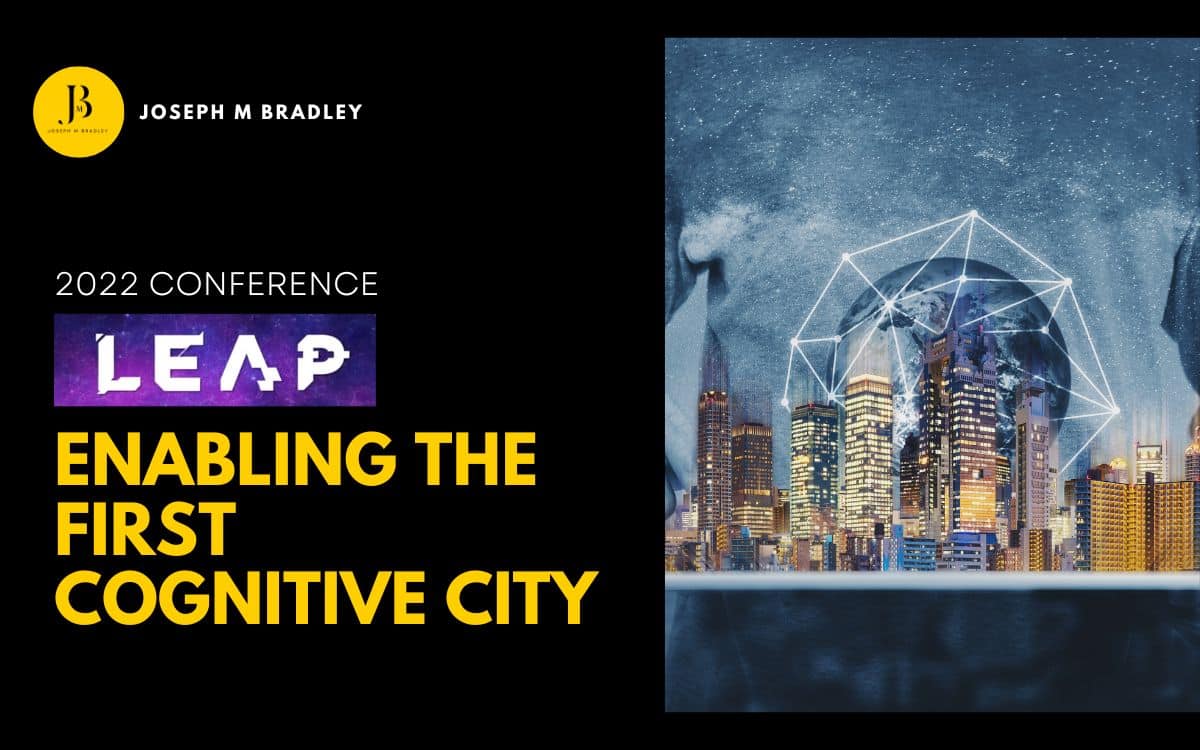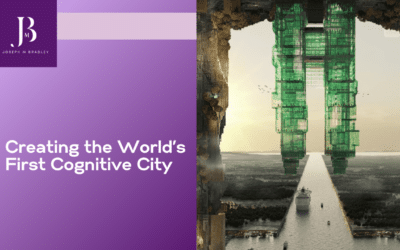The evolution of smart cities has been gradual. What started with innovations like the synchronization of traffic lights now uses IoT, artificial intelligence, and the cloud to collect electronic data from and about people and infrastructure to improve efficiency and quality of life. The next step forward is the development of cognitive cities.
What’s the difference between a smart city and a cognitive one? One is reactive, and the other is proactive and predictive. In a cognitive city, there is continuous interaction between technology and residents. That makes trust crucial. Without trust between people who own the data and entities who use it to add value to residents’ lives, cognitive cities will not be possible.
Transcript:
It’s about getting information and being able to react to it.
So as an example, if you’re driving in your car, there’s a little light that comes on in your car that tells you if your oil is too low.
Now if you’re driving in your car and that light comes on, what happens?
It means you are going to pull over or you’re going to blow your engine.
So, while it’s giving you information, the damage is done.
It’s too late. You have to react to the alarm.
A cognitive city is proactive and predictive.
So instead of that oil light coming on and you have to pull over to the side of the road, the week before it’s going to say,
“Joseph, we’re noticing traces of metal. You need to come in because we think there’s some problem with some friction happening in your engine. You can come in the next couple of weeks, so we check it out.”
So, it’s proactive and predictive.
It uses technology to predict what’s happening.
If you think about it, in the case of the Internet, a smart city prescribes to the internet of perception.
We’re trying to understand and perceive what is happening,
A cognitive city pulls you from the internet of perception to the internet of meaning.
This means that you’re able to understand and interpret that data so that you can create value.
And to do that, obviously, there are a lot of things to do.
You must have trust, because if I lose that trust from you as an individual,
you’ll never give me that information in the first place and this pyramid begins to fall down.
You’re beginning to see that in parts of the world, that without trust, I’m not willing to share information.
And once that happens the whole idea of innovation and startups, and everything we’re talking about is dramatically reduced.
So that’s the difference between a smart city and a cognitive city.
Smart is reactive, cognitive is proactive, and predictive.


